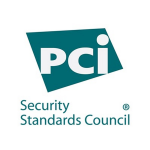Privacy-first software for a secure, automated world
At Parker Software, we understand the requirements of organisations that handle vast amounts of sensitive and regulated data. Our privacy-first software ensures that as you grow, you do so with confidence, knowing that your data, and the data of your customers, is protected. We care about your compliance.


What is automated regulatory compliance?
At Parker Software, we understand the requirements of organisations that handle vast amounts of sensitive and regulated data. Our privacy-first software ensures that as you grow, you do so with confidence, knowing that your data, and the data of your customers, is protected. We care about your compliance.
Why Parker is the best software for data privacy
When it comes to secure automation and regulatory compliance, Parker Software stands apart. Our privacy-first software, including WhosOn, ThinkAutomation, and OptimaGPT, is built on a fundamental philosophy of protecting your data. This is achieved through our on-premises and private cloud deployment options, ensuring that your data never leaves your secure infrastructure.
FAQs
On-premises deployment is the ultimate form of data privacy. It ensures that your sensitive information is never exposed to third-party clouds or services. This is essential for industries with strict regulations.
When you use a public cloud provider like Microsoft Azure, Amazon Web Services (AWS), or Google Cloud, your data is stored on physical servers in their data centres. These data centres are located around the world. The exact physical location may change and is often not specified to the user, as the cloud provider moves data between locations for efficiency and redundancy.
Public cloud providers employ a multi-tenant model, where multiple customers share the same underlying physical infrastructure. While your data is logically separated, the cloud provider’s staff and systems have a level of access. This can raise concerns for organisations in highly regulated industries.
For many regulations, such as GDPR, the location of data processing is as important as its storage. When you use a public AI model, your data may be processed in a different country from where it originated. This can lead to a violation of data sovereignty laws and other compliance requirements.
It is possible, but it requires a careful, shared responsibility model. You must use the provider’s security tools, configurations, and certifications to ensure your use case aligns with your compliance obligations. This is often more complex and less secure than a private, on-premises solution where you retain full control.






